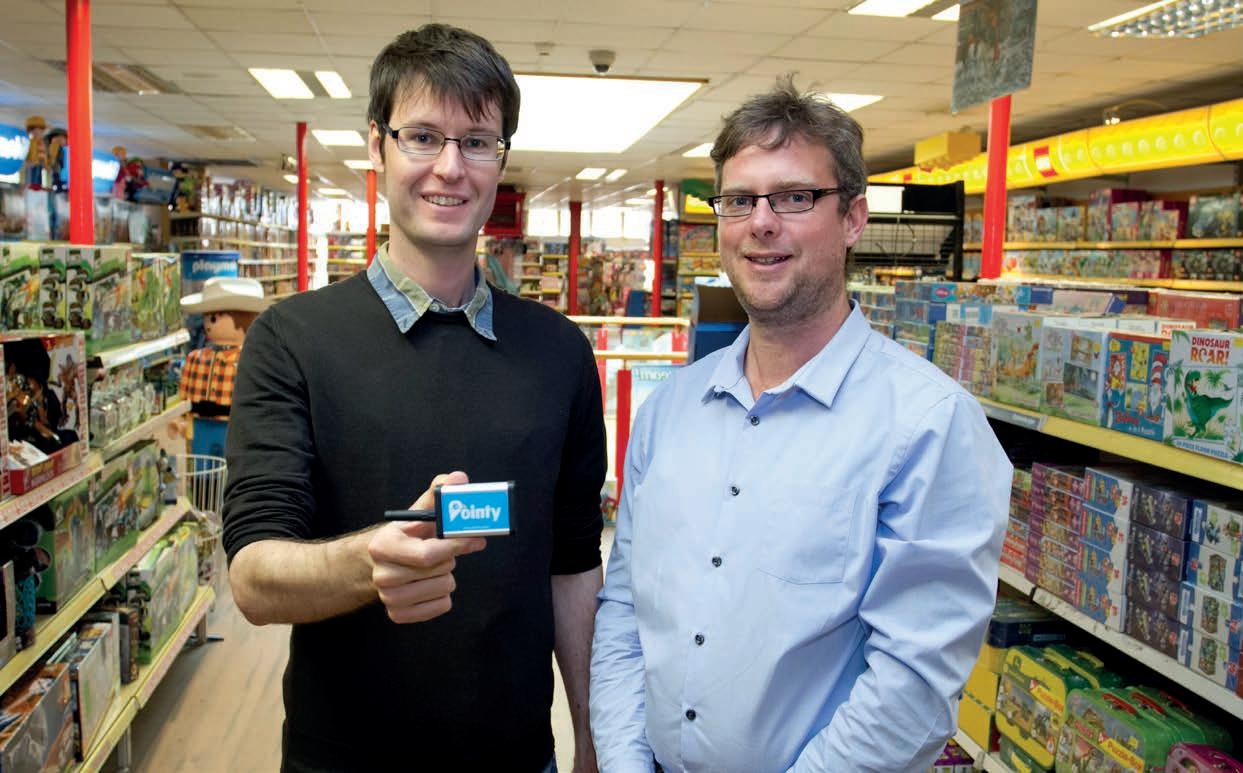
3 minute read
Transforming local retail
Mark Cummins (2001) explains how he created Pointy, a startup recently acquired by Google
Pointy was a very simple idea: if you are looking for a particular product, Pointy will show you which nearby shops currently have it in stock.
It always seemed strange to me that you could search the whole internet in half a second, but if you wanted to know whether your local shop had a product in stock, you still had to call them or go there in person. The reason for this situation is that retailers maintain their inventory records in thousands of different ways, and often in systems not connected to the internet, so there is no easy way to collect the data together.
Local retail is still by far the dominant way that people buy things. E-commerce gets all the media attention, but traditional retail is much bigger. So a solution to the problem could have a significant impact. This got me thinking about a technical solution that might make the problem tractable.
At Oxford I had read for a DPhil in Engineering Science, working in computer vision and robotics. My DPhil research was on robot navigation, supervised by Paul Newman (Balliol 1991). During that time I met Charles Bibby (Worcester, 2000), a fellow DPhil student who would become my co-founder at Pointy. Neither of us knew anything about retail, but we knew something about the technical problems that needed to be solved, and worked out the rest as we went along.
We ended up developing a small electronic device that attaches to the retailer’s point of sale system and collects the necessary information in a uniform way. We went to quite extreme lengths to make the system truly universal and simple to use. The end result was something that took a few minutes to set up and could be used by any retailer, no matter what existing equipment they had. The Pointy service then published the inventory data online via search engines such as Google, so that shoppers could easily find nearby stores that had the product they want available.
Charles and I established our company in Dublin in 2014. Within a few months we had some rough prototypes, and started to pilot the system with local retailers. It was enough to convince investors, and raise some money to scale up the company. Over the next five years we raised $20m of venture capital and grew the company to just under a hundred people. Our main market became the US; within a few years small retailers everywhere from Hawaii to Alaska were using the system.
Building the company was an interesting journey: it stretched me in different ways to academic work. A start-up is a very intense rollercoaster ride, but also extremely fulfilling. The thing I ultimately enjoyed the most was building the team, and watching them do things together that none could have done alone.
In January 2020 Pointy became part of Google. We’d been working with Google from early on, because search was an important part of our business. When they approached us with an acquisition offer, it was a natural fit. Our core focus remains the same, but we have gained all the benefits of Google’s reach and scale.
Shortly after the acquisition closed, Covid-19 struck and turned the world upside down. For local retailers, an online presence suddenly became even more important. It reinforced for us that we were doing something that really mattered to small businesses everywhere. Now, with recovery on the horizon, we hope we can be part of the way local businesses bounce back. We’ve still got a very long way to go to finish the journey we started.
TOP PHOTO: Mark Cummins (left), holding Pointy, with Pointy co-founder Charles Bibby.




